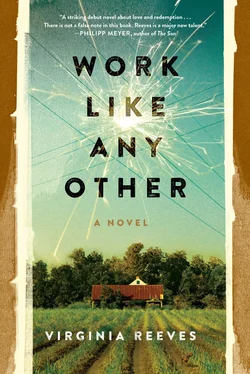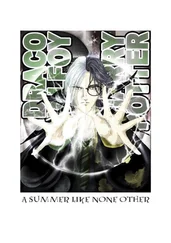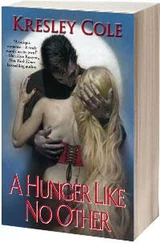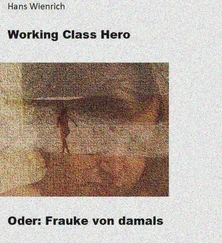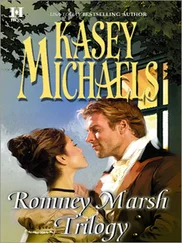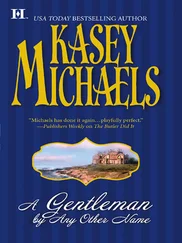My voice brought Maggie up, and she stood behind my knees. I could so easily have torn a piece off the hem of Marie’s dress and held it down for Maggie to smell. Got it? I could have said. This is what we’re after.
Why are you putting that dog on me? Marie would yell.
Maggie here can smell the wrongs in a person .
Or I could have told her she was simply a convict, a criminal, and that we — this dog and I — were in the habit of catching those types.
I could see her climbing a tree, her blue dress snagging on its branches and bark, the hem torn to her knees and then her thighs, her skin seeping small scratches. Maggie would haul me up to the trunk, barking at my ex-wife, treed like any other escapee.
Easy. Easier. There was no such thing.
My hands found themselves on her shoulders, just the height my right arm would allow. The bones of her collar lurked there beneath the layers of fabric and skin. You were once so beautiful, Marie . I pushed her back against the wall, my elbows finding their way to her chest, my forearms on either side of her aged face, my hands in her graying hair. My shoulder fought me, but I forced it to listen.
Tears seeped from her thick-lidded eyes. “Roscoe.”
Her hand was still on my stomach, that long scar.
I pressed against her, against her face, against the trail she’d planted to that spot, and as I pressed, I saw them — my people — Ed and Chaplain, Taylor and the warden, even Beau and the remains of Stevens. They had all built my story, and I followed the routes they’d given me. Even George Haskin was a trap I’d been set to release. I had been Taylor’s dog boy and Chaplain’s reader and Ed’s friend, and before that I had been Marie’s salvation as well as her disappointment, and before that — long before — I had been her husband and an electrician running power from the banks of the Coosa, and a father if only for those few moments I held the infant version of our son, offering him my knuckle to stanch his crying.
And now I was a landowner, living off the kindness of those I’d harmed. I was the things around me — an old cottage fed by new power, a hound bred to run and tree men, lazy by a woodstove. I was a child’s pallet on the floor, as close to a prison cot as I could get. I was rafters and roof shake, a burned circle in the grasses. I was the poles I’d raised — trees stripped bare, reappropriated, renamed. I was Wilson’s lost arm.
And given the choice, Marie would have had me back at Kilby, or walking a road toward somewhere unknown. She would have had me disappear.
I kept my hands in her hair, my arms on her shoulders.
Her fingers dropped from my stomach. “Roscoe.”
Gerald was in her, the soft man he’d become and the smug son he’d once been. I had left marks on him and would leave marks on Marie — all my anger and ruin squeezing itself against her, into her, through her. I could see Yellow Mama welcoming me in, my conjured young Marie right after all, Yellow Mama my resting place, all this electricity leading me to her seat, her wires, her current.
But I had chased after Hughes. I had thrown my lot in with the warden and Taylor and Rash and Chaplain, and because of those particular loyalties, I had escaped — escaped Yellow Mama and her guards, Kilby and its wall, the hospital and solitary. I’d escaped and been offered a place — here, a home.
I wouldn’t let Marie steal that. I wouldn’t let her send me back.
I pressed down, leaving just the briefest bruises on her papery neck — reminders of what I’d done and what I still could do. Then I stepped away, the feeling of her drying up like the anger, a frail, parched thing.
Her hands were at her throat, her fingers exploring, her eyes wet and wide.
“Roscoe,” she said, as though it were the only word she knew.
“Did they tell you? About this place? Do you know that I own it?” Her face told me she didn’t, and I welcomed the chance to surprise her. I stepped forward, and she shrank from me, her body begging access to the wall’s plaster so she could slip away. I wouldn’t touch her — not ever again — but she didn’t know that. “Moa and Wilson signed it over to me — the cottage and a quarter section of land. This is my home, now.” My voice was calm, more fearful than my shout, possibly more fearful than my grip on her neck. “I won’t fight you for your remaining assets, Marie. This place — the cottage and the land — it’s welcome because it’s not yours.”
Maggie pushed her nose against my palm. I didn’t tell her to sit down. Instead, I pulled on one of her ears, both of us eyeing Marie, holding our line. I would’ve welcomed Taylor in that moment, high on his horse, shackles ready. Let’s lead her in, he’d say, once Marie’s hands were bound. She’s a tricky one. Best keep that dog on her.
I could see Marie out in front of us, her shoulders hunched, her feet shuffling her toward whatever confinement she’d created for herself, whatever her life had become.
She should go. She should stay gone.
“I don’t want to see you again.” I bent to collect my shirt from where it’d dropped to the floor. Maggie stayed standing, her attention on Marie. I went to the table, where my breakfast had gone cold. Marie had to see the deep scar along my back from the dog belt.
“All right,” I heard, her voice a quiet mewling.
She squared her shoulders and held her hand out toward Maggie, her face nearly the one I’d known before. “Will she bite me?”
“Easy,” I said to Maggie. And to Marie: “No.”
Maggie held herself rigid. “Easy, girl. It’s all right.”
Marie’s hand reached the dog’s head, her fingers around the back of Maggie’s skull, the nails starting to scratch — a spot Maggie loved. The stiffness went out of her quick, all her muscles releasing, her tail wagging.
“You’ve gone soft,” I scolded, though it was hard to mean it, knowing I had, too.
Marie knelt, her face level with Maggie’s muzzle. “I didn’t know what to expect from this. This moment here, this morning. I wanted to convince you to go, but I wanted you to try some convincing, too. Silly, isn’t it? I even imagined you courting me again. I saw us taking a walk around the cottage here, out past your new lines. I imagined you telling me about all the plants again, and I’d tell you about the birds — the eastern phoebe I heard on the way over and the bay-breasted warblers that I started noticing right after you left. They’re called a confusion of warblers, or a bouquet . I was thinking about telling you all those collective nouns.” Her hands stroked Maggie’s ears. “But then my own anger comes again, and all those fantasies go away. I remember how distant you became after Gerald’s birth, and then your reluctance to come here. I see those lines you raised and the lies you told me, lies I believed and spread. I see that boy’s dead body, all burned and blackened, and I see Wilson in those coal mines. I see his arm, Moa’s pain. And you — I see you spending all that time in prison, and I’m angry for that as well, angry at you for doing it to yourself, for leaving us.”
She stood slowly, her joints audibly complaining.
“I know you have your own list, Roscoe, all the ways I’ve disappointed you.”
She smiled, and I could nearly see myself loving her.
“Walk me out?” Bruises were bluing up on her neck.
I pulled my shirt over my head, tired of my demonstration.
“I don’t know that it’s good for you to be in Gerald’s life, but will you please try — try to make it good.” We were at the door.
“I will.” I am trying.
Marie nodded, and we stood there facing each other, Maggie between us like a pastor overseeing a ceremony, presiding over our good-byes. I want to think Marie and I felt the same, that we both wanted to hold each other, to bring our mouths together once more, to possibly even take each other’s hand and walk into the bedroom to lie once more as husband and wife on that old mattress where I rarely slept, that we wanted those things alongside the clenched fists, and the thrown books, the clawing fingernails and bruised skin. And because we wanted both the tenderness and the violence, we could do nothing but stand that short distance away from each other, quiet and still.
Читать дальше
